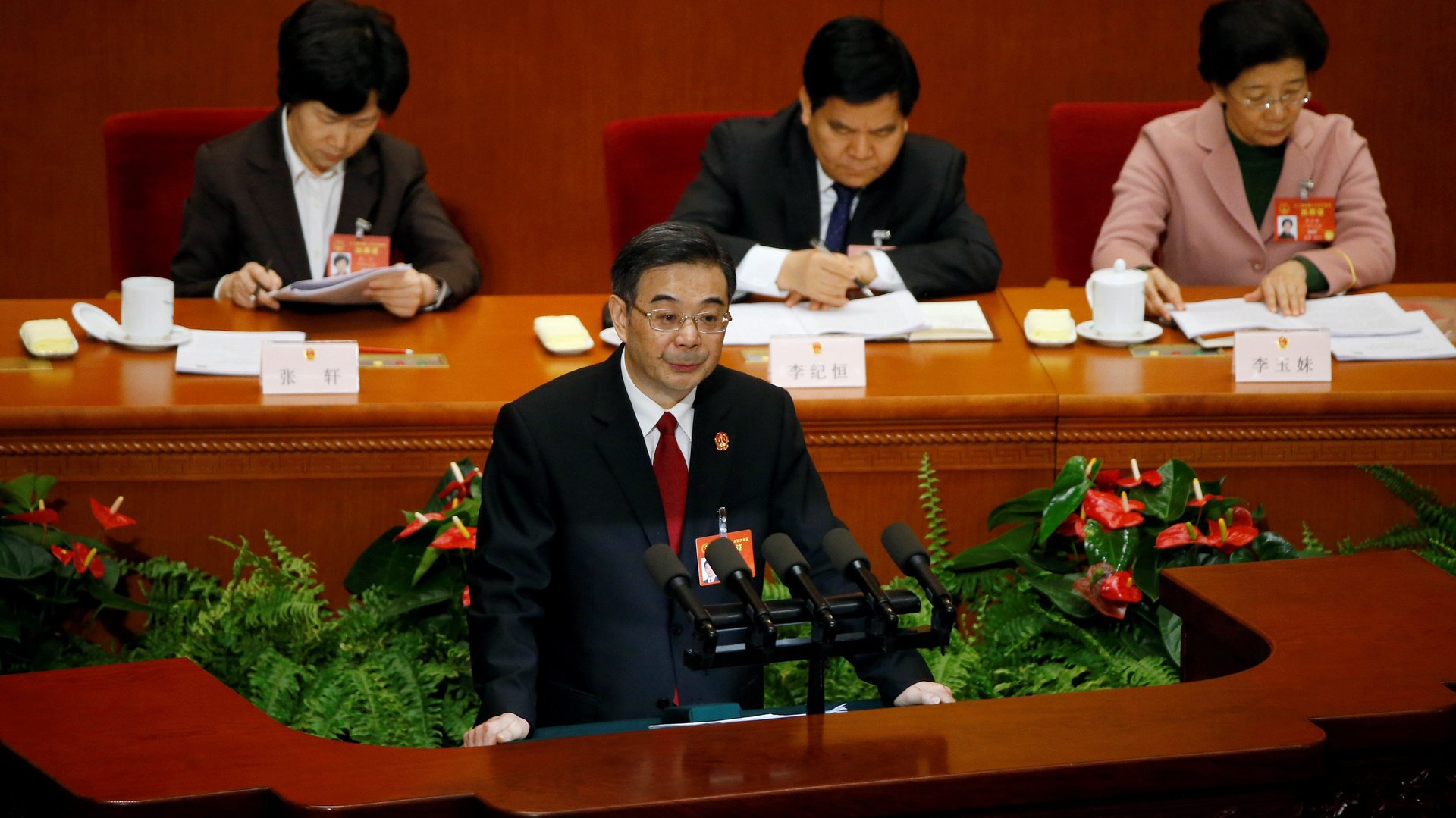Beijing’s scariest tack yet in the South China Sea: projecting an aura of calm
This week Japan said it plans to send its most formidable warship on a three-month tour through the South China Sea. Observers waiting for an angry reaction from China—which claims nearly all of that sea and was mighty testy about it last year—were likely disappointed.


This week Japan said it plans to send its most formidable warship on a three-month tour through the South China Sea. Observers waiting for an angry reaction from China—which claims nearly all of that sea and was mighty testy about it last year—were likely disappointed.
Here’s what Chinese foreign ministry spokeswoman Hua Chunying had to offer:
“If it’s only a normal visit, going to several countries, and passing normally through the South China Sea, then we’ve got no objections, and we hope this kind of normal exchange between relevant countries can play a role promoting regional peace and stability.”
Say what? The response sounded remarkably mellow given Beijing’s belligerent rhetoric before and after an international tribunal ruled last July against its vast claims to the sea, saying they had neither legal nor historical basis.
But it wasn’t just that reaction out of China that sounded unusually measured. In various instances this year, on maritime matters that might have enraged Beijing in 2016—or provoked stern warnings of some sort—Chinese diplomats have given responses that seem disconcertingly lawyerly or diplomatic.
Last month a formidable US carrier strike group entered the South China Sea, the first to do so under new American president Donald Trump. Ren Guoqiang, the spokesman for China’s defense ministry, responded with:
“We hope the US can sincerely respect the sovereignty and security interests of countries in the region, as well as the efforts they have made toward regional peace and stability. We will also respect other nations’ freedom of passage and flight through the region so long as they adhere to international law.”
China has also sounded a conciliatory note when explaining maritime actions of its own that might alarm others. Last week a brouhaha broke out in the Philippines over Chinese survey ships being spotted off the east coast of Luzon, the nation’s main island, near an undersea plateau called Benham Rise.
This week Hua delivered a calm, reassuring response from China.
“I wish to reiterate that China fully respects the Philippines’ rights over the continental shelf in the ‘Benham Rise’ and there is no such thing of China challenging those rights.”
Of course, below the calm surface of its diplomatic utterances, China’s ongoing maritime assertiveness in the sea continues, often in defiance of last summer’s landmark ruling. The tone of reasonableness complements a push by Beijing to improve the nation’s maritime legal framework in the wake of the ruling. The Supreme People’s Court has “stepped up guidance to maritime courts to improve their capacity and promoted international maritime law studies, in a bid to turn China into an international maritime judicial center,” according to state newswire Xinhua.
Meanwhile Beijing is also clarifying rules and regulations, including a summer fishing moratorium that it says apply to ships of all nations, even in waters to which, according to the tribunal, China has no valid claim. Fishermen from nearby countries could well wind up in Chinese jail this summer for fishing where they have every right to operate. And a draft revision of China’s maritime “traffic safety” law calls for foreign submarines to stay surfaced and display their national flag while in the vast area that China still claims despite the ruling.
The nation continues to expand and further militarize islands (both real ones and the artificial variety), and future aggression or retaliation over perceived trespasses can’t be ruled out. In 2012 for instance China seized control of the disputed Scarborough Shoal, a chain of reefs and rocks near the Philippine coast. (The tribunal decided neither country had sovereign rights over it.)
But complementing any hostility, it appears, will be the aura of legality and comforting tones of reasonableness.